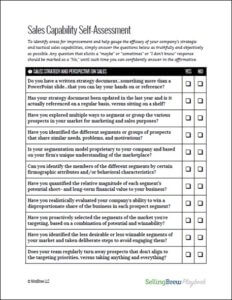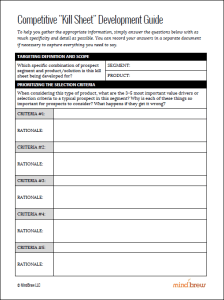Think back to the first time you played a team sport. If you were like me, you were around four years old, dressed in an oversized neon t-shirt, stiff shin guards and spiky shoes. You had no business—or interest in, for that matter—dribbling a soccer ball, but the weedy flowers in the grass sure were enticing. While I may not recall what drills we ran in practice and never did reach my Mia Hamm potential, I can still attribute some of the most important lessons I’ve learned in life to my first soccer coach.
It takes a special kind of person to coach, especially a herd of four year olds in a grassy field. You have to be a motivator, a cheerleader, and a discipliner simultaneously. Sales coaches have the same set of responsibilities, despite how different these two coaching roles are. Sales coaches have the opportunity to teach new reps how it’s done, help them reach their goals, and develop them into quota-crushing machines.
So why are half of them still missing quota?
Especially in today’s B2B selling landscape, salespeople have a tough road in front of them. Buyers are now in control of their purchase process as they have the resources to make informed purchase decisions right at their fingertips. Buyers have high expectations for salespeople, and want a personalized, engaging experience during each interaction. In effect, sales coaches are responsible for ensuring reps have the resources and support they need to succeed in every one of these prospect meetings.
Weekly or monthly check-ins, listening in on sales calls, and offering static supporting content don’t cut it in 2016 when it comes to sales coaching. Sales coaches need to embrace and adopt sales technologies—some of which they already have access to—in order to better serve their reps. Below are three aspects of sales coaching that should be enhanced by technology in order to help reps meet and exceed quota.
- Setting quantifiable goals: Sales coaches should use each sales rep’s pipeline and previous performance to set goals that are reachable and reasonable—and set reps up for success with methods of improvement. Pipeline and performance can be tracked through the CRM, and coaches can use content analytics to see what materials reps have been consuming to prepare for and execute a prospect interaction. Sales coaches should understand the difference between activation and empowerment content, and help reps understand the purpose of each as well. This way, coaches can effectively assess reps’ preparation and execution processes to help them get closer to their goals.
- Gaining visibility into reps’ activities: An effective sales coach should have visibility into each rep’s activities, such as what content he or she shares with a prospect and the extent to which a presentation is personalized for a prospect, and they should be able to correct any missteps a rep makes in the interaction. For example, if a rep shares a case study specific to the banking industry with a prospect in manufacturing, a sales coach can highlight this action and suggest more relevant collateral for the next time around. Properly correcting sales actions requires robust content analytics, and full access to all of a sales organization’s collateral in a single view. It is even more powerful if this content can be accessible in a company’s CRM system, so prospect activities can be recorded and reviewed by sales coaches with an added layer of CRM context.
- Collaborating on high-stake deals: high-stake deals require collaboration with a number of internal sales experts. CEB has found that an average of 5.4 decision-makers are involved in today’s complex B2B buying process, and each may come from different departments within an organization. This requires expertise that a single sales rep may not have on his or her own—which is where sales coaching comes in. Sales coaches need an efficient and effective way to round up subject matter experts within the sales organization to provide input on high-stake presentations and other sales materials. One way to do this is with a universally accessible content platform that allows multiple individuals to edit, comment and share materials simultaneously. This provides transparency, enables efficient feedback, and ensures accuracy from all involved parties so the sales rep can confidently enter a sales interaction armed with the most powerful presentation and supporting materials.
Coaching is not a difficult feat, and it takes a combination of widespread knowledge in a practice as well as the interpersonal skills necessary to motivate and encourage an entire group. Sales coaches have an advantage in technology, and should optimize it in order to cultivate an effective sales force that hits quota every quarter. Harnessing content analytics, a collaborative workspace, and CRM will help sales coaches ensure reps’ preparation and success in every prospect interaction.











